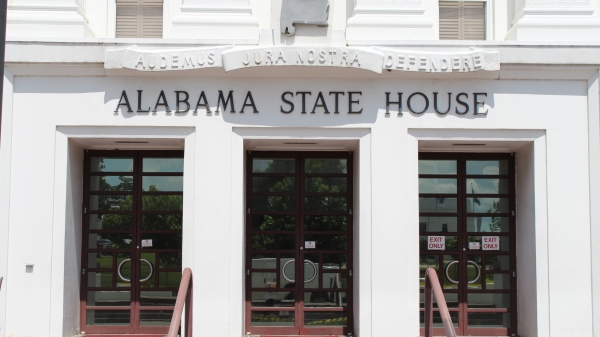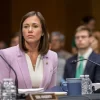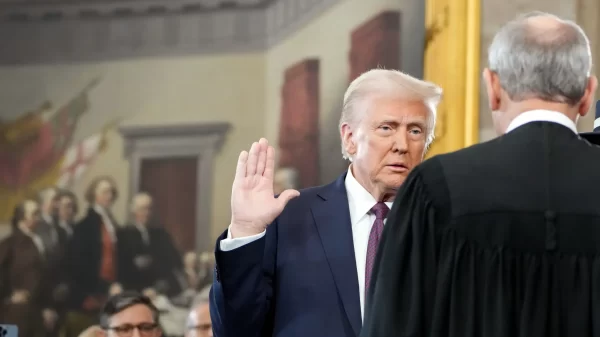By Chip Brownlee
Alabama Political Reporter
Thousands of children could lose their health insurance beginning New Year’s Day, and tens of thousands more are set to lose their coverage Feb. 1 if Congress doesn’t approve funding for the Children’s Health Insurance Program.
Up to 7,000 children enrolled in ALL Kids — one part of Alabama’s CHIP program — will be kicked off their plans come January, according to a Kaiser Health News report. The 7,000 children are among those who would typically renew their annual coverage in January.
All 84,000 children enrolled in ALL Kids will lose their insurance coverage on Feb. 1 if no deal is reached in Congress to fund the CHIP program, which provides insurance to more than 9 million low-income children nationwide. Without federal funding, Alabama won’t be able to continue the $200-million-a-year ALL Kids program.
“That is absolutely my main focus, the realization of how devastating this will be to families, to get a letter a few days after Christmas, telling them that their children’s health insurance will end Feb. 1,” Alabama CHIP director Cathy Caldwell said earlier this month. “It’s awful.”
On Monday, the Alabama Department of Public Health announced that it would freeze enrollment for ALL Kids beginning January 1, which would effectively prevent renewal for about 7,000 children who would normally renew their coverage beginning Jan. 1.
Officials will also begin sending out notices beginning the day after Christmas to the families of all 84,000 children who will lose coverage on Feb. 1. The letters inform families that coverage will end, regardless of the “good thru date” on their children’s insurance card, unless Congress continues funding.
“If we know, say by Christmas, we will not send the letter,” Caldwell said. “If we know by mid-January, we will not cancel. We are, even with our computer system changes, doing it hoping that we never have to turn it on.”
Alabama was the first state to fully implement CHIP under President Bill Clinton’s administration, and in 1997, before the program began, 168,600 children — about 20 percent of the state’s kids — were uninsured. Now, only 2.4 percent are uninsured.
“That record has earned Alabama’s program national recognition as the ‘Star of the South,’” said ARISE Citizens’ Policy Project policy director Jim Carnes.
This year, Alabama became the first state to announce contingency plans to end coverage as funding dwindles.
States are allowed to enroll CHIP-eligible children in Medicaid, create a separate CHIP program or do a combination of both. Alabama is one of the states with a combination of both. The ALL Kids program provides medical and mental health coverage — through Blue Cross Blue Shield of Alabama with premiums and co-pays — to families who make too much for Medicaid but still qualify by CHIP eligibility standards.
Nationwide, the separate CHIP standalone programs, like ALL Kids, are those most at risk of shutting down. At least 25 states are set to run out of money for standalone CHIP programs beyond January, according to a Georgetown University study. The 7,000 children who are set to lose coverage in Alabama in January are among 1.9 million children nationwide who could lose coverage in January.
If the state is forced to shut down the whole ALL Kids program on Feb. 1, the remainder of the 84,000 children will be among another million to lose their coverage in February, according to the same study.
Another 75,000 children are provided health care by the Medicaid component of the CHIP program. Those children are not expected to lose their coverage thanks to a “maintenance of effort” provision of the Medicaid program, which requires that states keep the same eligibility standards for children enrolled in Medicaid until 2019.
But Alabama will need to pump more money into Medicaid if federal funding is not continued for CHIP. Medicaid expansion under CHIP had been funded at 100 percent since the implementation of the Affordable Care Act, but if federal funding is not continued, Alabama will have to pick up 20 percent of the tab.
“If we had to do that all of the sudden, it’s really going to cause us a problem in the General Fund for what we’re going to be debating starting here in January,” said State Rep. Steve Clouse, who chairs the Alabama House Ways and Means General Fund Committee, in an interview with APR earlier this week.
The costs could be upward of $45 million a year, Clouse said.
“Ending ALL Kids also places a strain on Alabama’s threadbare General Fund,” Carnes said. “CHIP funds now pay for the health care of around 75,000 children enrolled in Medicaid, who will continue to receive coverage but at new cost to the state.”
States have a couple of options if no funding is approved for CHIP before their programs run out of money. In Alabama, the options look like this: the state could cancel coverage through ALL Kids or it could shift ALL Kids enrollees to Medicaid by expanding eligibility for Medicaid.
Though some lawmakers have shown a willingness to try the second option, it doesn’t appear likely given Alabama’s budget woes. That option could add an additional $40 million, even with federal matching funds, to the $45 million bill for the children in the Medicaid component. In total, covering all 160,000 CHIP enrollees through a Medicaid expansion would cost upward of $80 million.
“If they don’t extend the [ALL Kids] program, they’ll be off,” Clouse said. “Unless someone comes up with a significant amount of money, I don’t see how we could fund it.”
In recent years, the Legislature has faced massive shortfalls as Medicaid and prisons costs rose. Last year, lawmakers were able to save a $90 million reserve thanks to settlement money from the 2011 BP Deepwater Horizon oil spill, but much of that will be spent this year on mandated prison improvements and other essential costs. In May, lawmakers approved putting that money aside knowing that next spring would present new, unexpected costs on the healthcare front, but the surplus from last year likely can’t cover all of the new costs.
The more likely reality is what officials are planning for: that ALL Kids will just end, and the 84,000 children will lose their coverage. Those who lose ALL Kids will be screened for Medicaid eligibility, but Caldwell has said less than 10 percent may be eligible for Medicaid.
The remaining children who aren’t eligible for Medicaid will be directed to the federal Health Insurance Marketplace, set up by the Affordable Care Act, where some families may be eligible for subsidies. But premiums, copays and deductibles will be much higher than through the CHIP program and many families may find the costs prohibitive.
Despite being a near-universally popular program publicly supported by both Republicans and Democrats, CHIP funding dropped in priority as lawmakers in D.C. pushed through and celebrated a $1.5 trillion tax cut Wednesday. While there is a possibility CHIP may be funded Friday in a last-minute continuing resolution needed to avert a government shut down, it may be off the books until after the New Year.
Funding for the program expired in September at the end of the fiscal year, but Congress has known since April that the program would need renewal.
While the Senate Finance Committee approved an extension of the program in October and the Republican-led House passed funding in November, neither of the bills have gained traction as Democrats objected to the cuts Republicans have proposed to “pay for” the renewal.
The House bill slashed funding from other public health programs set up under Obamacare and raised some Medicare premiums for more wealthy beneficiaries.






















































